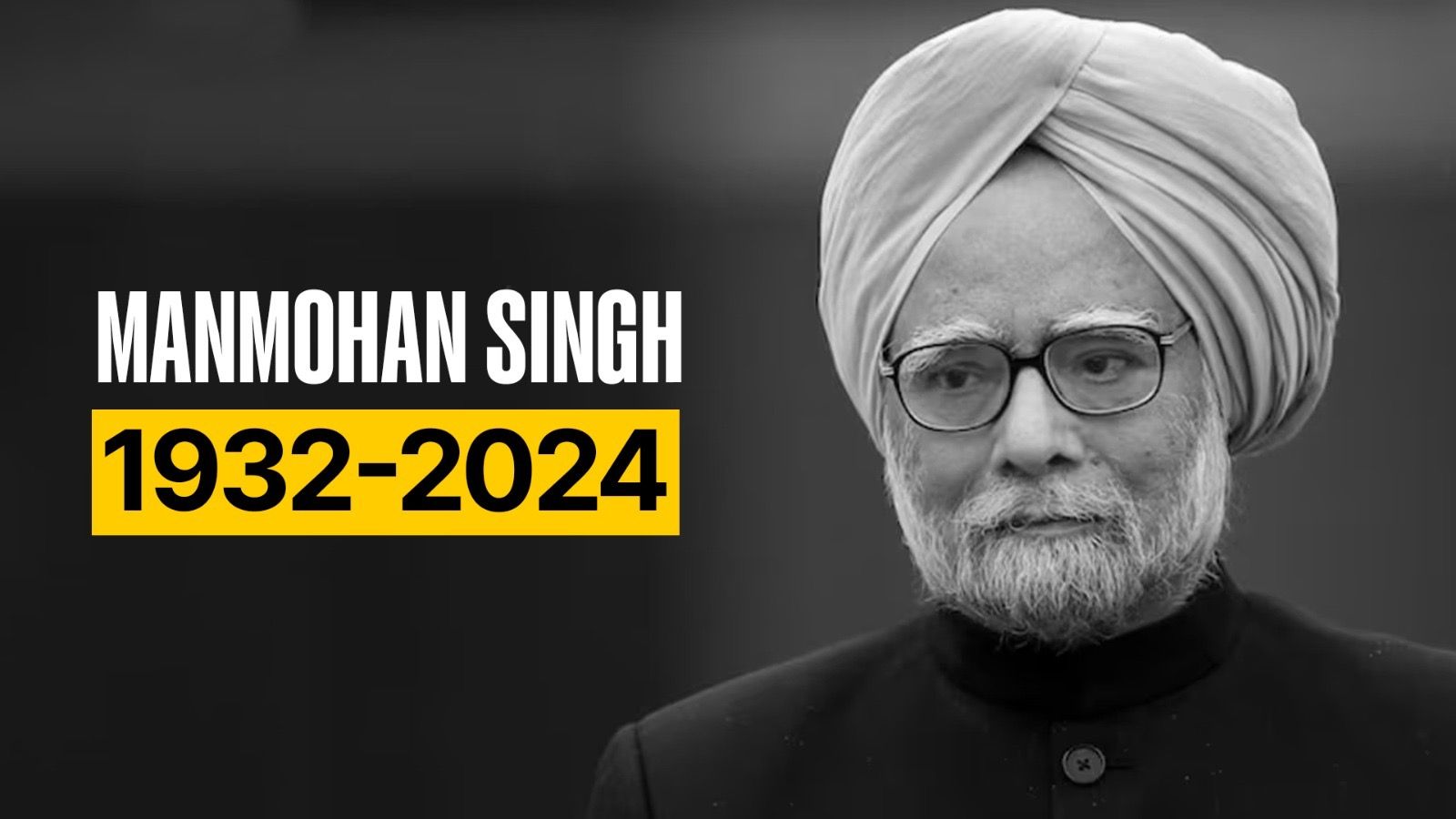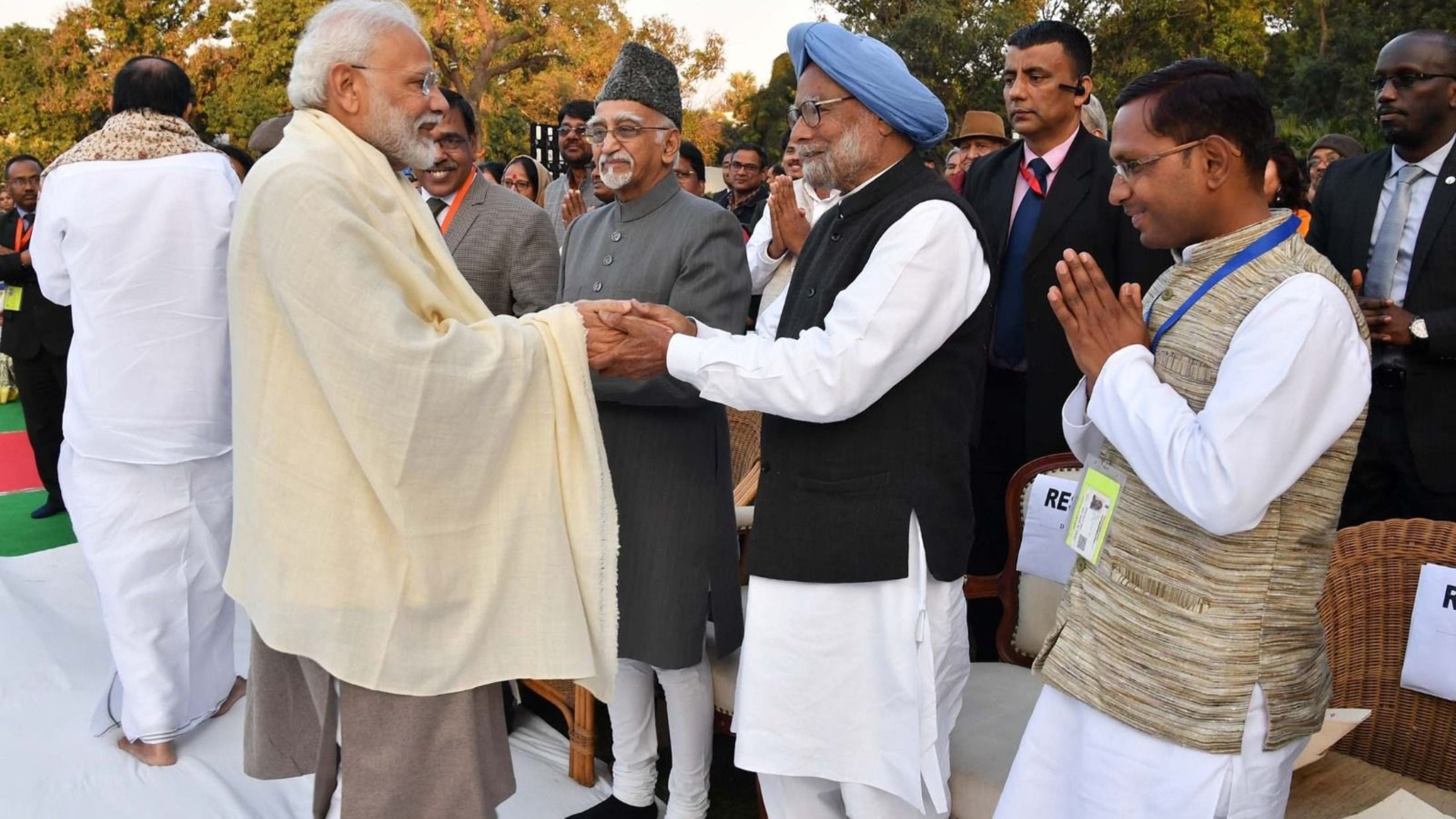The Legacy of Dr. Manmohan Singh: Economist, Leader, and Statesman
In the annals of modern Indian history, few individuals stand out as prominently as Dr. Manmohan Singh, a man who wore multiple hats with grace—an economist par excellence, a visionary policymaker, and the 13th Prime Minister of India. His contributions to India’s economic transformation and political landscape have left an indelible mark.
This blog explores Dr. Manmohan Singh’s life, his contributions as an economist and politician, and the lasting impact of his policies on India.
Early Life and Academic Brilliance
Manmohan Singh was born on September 26, 1932, in Gah, a small village that is now in Pakistan. Despite his humble beginnings, his thirst for education and brilliance in academics set him apart. He completed his undergraduate studies at Punjab University, earning accolades for his exceptional academic performance. Later, he pursued further education at the University of Cambridge and eventually earned a doctorate in economics from the University of Oxford. His thesis, "India’s Export Trends and Prospects for Self-Sustained Growth," laid the foundation for his later work in economic policy.
Dr. Singh’s academic achievements were just the beginning. His deep understanding of economics and a pragmatic approach to problem-solving would eventually propel him into positions of immense responsibility.
The Architect of India’s Economic Liberalization
Manmohan Singh’s entry into the political and economic sphere of India marked a turning point for the nation. In 1991, India faced one of its worst economic crises—a balance of payments crisis that threatened to derail the country’s growth. It was during this critical juncture that Singh, then the Finance Minister in Prime Minister P.V. Narasimha Rao’s government, took bold and transformative steps.
Under his leadership, India embarked on a path of economic liberalization. Singh introduced reforms that opened up the Indian economy to global markets, dismantled the license-permit-quota raj, and encouraged private enterprise. These policies included reducing import tariffs, removing industrial licensing, and fostering foreign direct investment.
The results of these reforms were revolutionary. India transitioned from a closed, sluggish economy to one of the fastest-growing economies in the world. The liberalization era not only stabilized the country’s finances but also set the stage for decades of economic growth, entrepreneurship, and innovation.
Dr. Singh’s famous remark during his 1991 Budget speech encapsulated the spirit of his vision:
"No power on earth can stop an idea whose time has come."
The Prime Ministerial Era (2004-2014)
Dr. Manmohan Singh served as India’s Prime Minister for two consecutive terms, from 2004 to 2014, leading the United Progressive Alliance (UPA) government. As Prime Minister, Singh was known for his quiet demeanor, intellectual integrity, and commitment to inclusive growth.
Key Achievements During His Tenure:
- Economic Growth: Under Singh’s leadership, India witnessed significant economic growth, with GDP growth rates often exceeding 8% during the early years of his tenure.
- Mahatma Gandhi National Rural Employment Guarantee Act (MGNREGA): This flagship scheme provided rural employment and reduced poverty levels across the country.
- Nuclear Deal with the United States: Singh spearheaded the India-US Civil Nuclear Agreement, which marked a new era of strategic partnership between the two countries.
- Right to Information Act: His government introduced the RTI Act, empowering citizens to hold government officials accountable.
- Social Welfare Programs: Initiatives like the National Rural Health Mission and Sarva Shiksha Abhiyan aimed to improve healthcare and education accessibility.
Despite these achievements, Singh’s tenure was not without criticism. Allegations of corruption within the UPA government, particularly during his second term, marred his legacy to some extent. However, Singh himself remained untainted by scandal, earning widespread respect for his personal integrity.
A Statesman with a Vision
Dr. Manmohan Singh’s contributions go beyond policy reforms and political leadership. He exemplified a rare combination of academic brilliance, humility, and statesmanship. Despite facing criticism for his reserved leadership style, Singh maintained his focus on long-term objectives, often choosing to stay away from political theatrics.
His ability to remain calm under pressure, his emphasis on evidence-based policymaking, and his belief in the power of dialogue and diplomacy made him a respected figure on the global stage.
Legacy and Lessons
Dr. Manmohan Singh’s journey from a village in pre-partition India to becoming one of the most influential figures in the country’s history is a testament to his intellect, perseverance, and dedication. His legacy is a reminder of the importance of visionary leadership, especially during times of crisis.
As India continues to navigate its path in the 21st century, the foundation laid by Singh’s economic reforms remains relevant. His story is not just one of personal success but also of a nation’s transformation.
Conclusion
Manmohan Singh is more than just a former Prime Minister; he is a symbol of resilience, wisdom, and integrity. His work has touched millions of lives and has played a pivotal role in shaping modern India. While his tenure had its share of challenges, his contributions to India’s growth story will be remembered for generations to come.
As we reflect on his legacy, there is much to learn from his approach to governance—an approach grounded in knowledge, humility, and an unwavering commitment to the welfare of the people.
This blog celebrates the life and achievements of Dr. Manmohan Singh, a man whose vision and leadership helped shape the destiny of a nation. Let his journey inspire future generations to strive for excellence and work for the greater good.





0 Comments